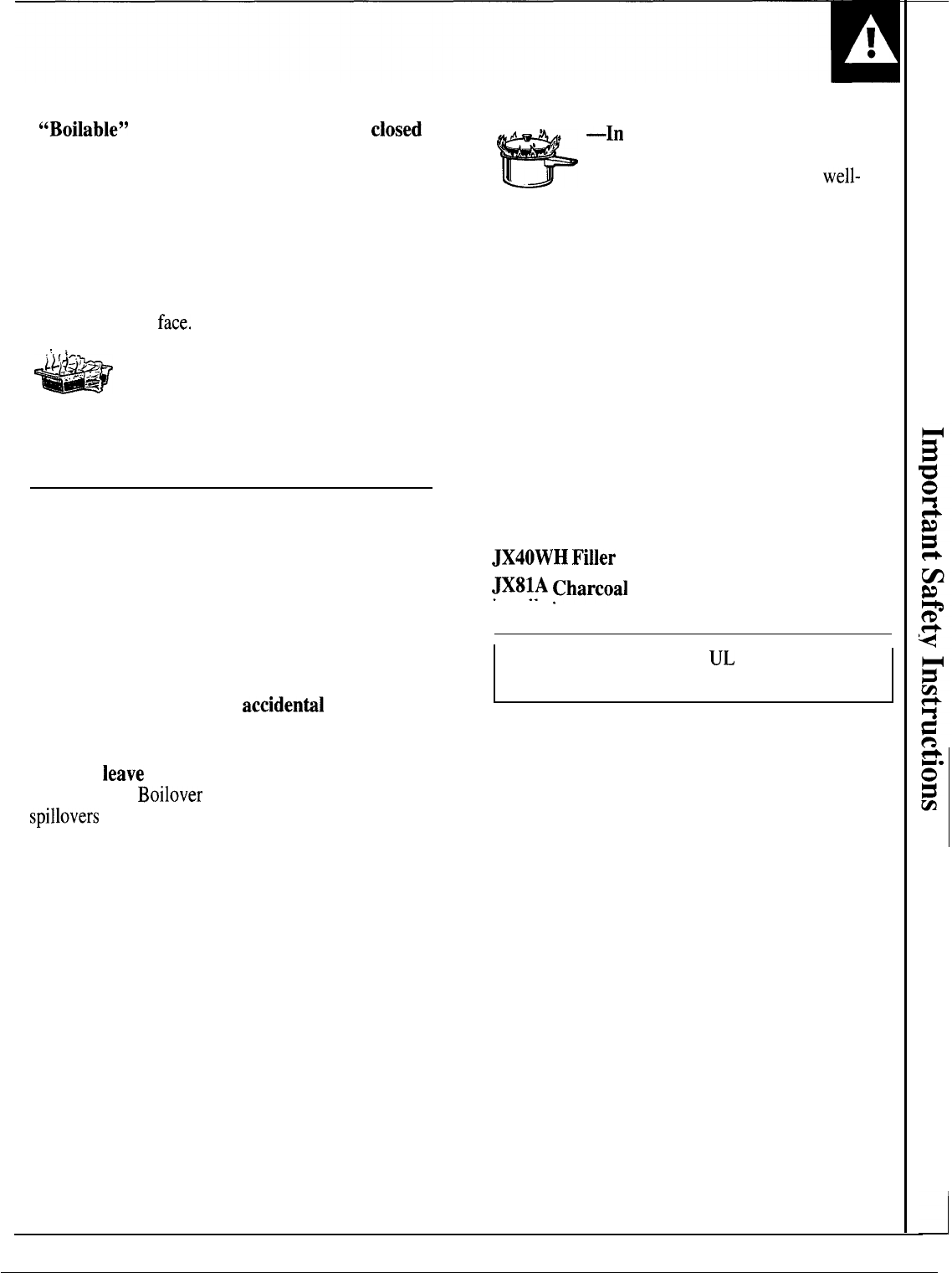
●
~~Boi]able”
cooking pouches and tightly
closed
plastic bags should be slit, pierced
or vented as
directed by package. If they are not, plastic could
burst during or immediately after cooking, possibly
resulting in injury. Also, plastic storage containers
should be at least partially uncovered because
they form a tight seal. When cooking with
containers tightly covered with plastic wrap,
remove covering carefully and direct steam away
from hands and
face,
‘
‘
i
‘~
*
.,-, . . .
.
--
.~
●
Hot foods and steam can cause
burns. Be careful when opening any
containers of hot food, including
popcorn bags, cooking pouches and
boxes. To prevent possible injury, direct
steam away from hands and face.
The Exhaust Hood
●
Have it
installed and properly grounded by a
qualified installer. See the special installation
booklet packed with the microwave oven.
●
The exhaust fan in the oven will operate
automatically under certain conditions (see
Automatic Fan Feature). While the fan is
operating, caution is required to prevent the
starting and spreading of
accidenbl
cooking
fires while the exhaust fan is in use. For this
reason:
—Never
leave
surface units unattended at high
heat settings.
Boilover
causes smoking and greasy
spillovers
that may ignite and spread if exhaust fan
is operating. To minimize automatic fan operation,
use adequate sized cookware and use high heat only
when necessary.
—In
the event of a grease fire,
smother flaming pan on surface unit by
covering pan completely with
well-
fitting lid, cookie sheet or flat tray.
—Never flame foods under the oven with the
exhaust fan operating because it may spread the
flames.
—Keep hood and grease filters clean, according
to instructions in the Exhaust Feature section, to
maintain good venting and avoid grease fires.
SAVE THESE
INSTRUCTIONS
Optional Accessories
Available at extra cost from your GE supplier.
JX40WH
Filler
Panel Kit.
~X81A
charcoal
Filter Kit for
non-vented
installation.
This microwave oven is
UL
listed for
installation over electric and gas ranges.
5
J


















